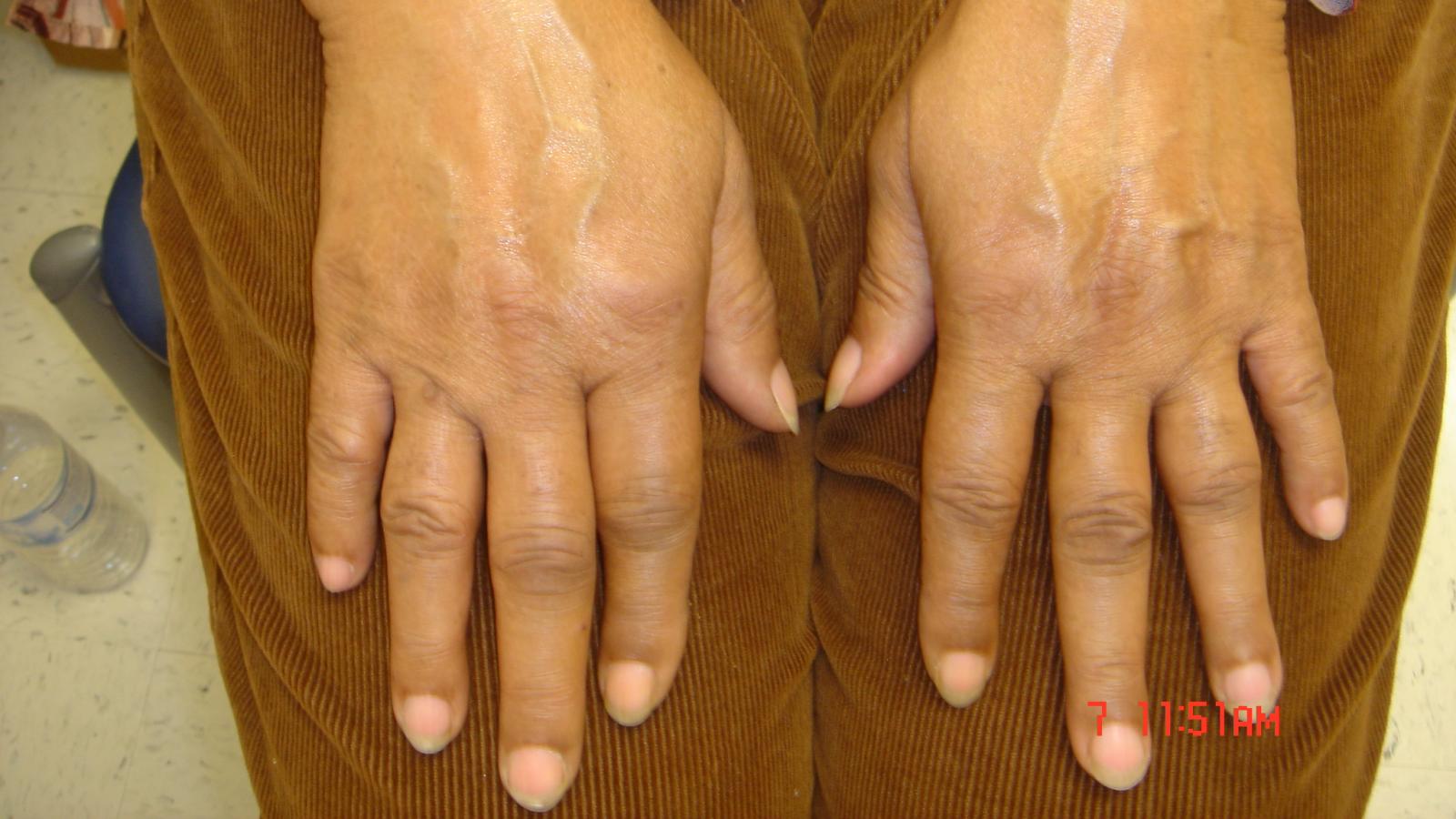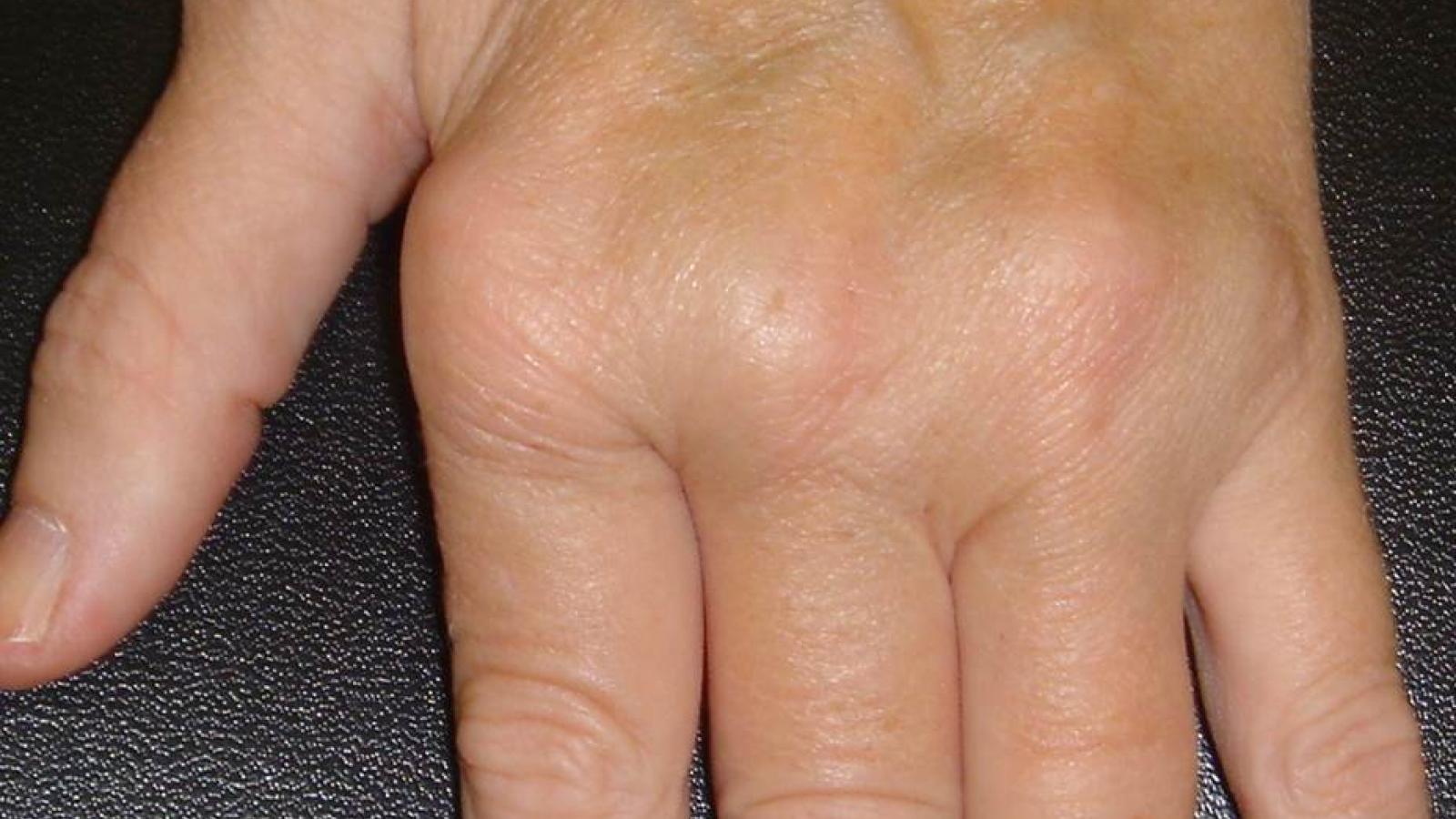Rheumatoid Arthritis
The last day was jammed with important reports and research including the late breaking abstracts.
Curcumin, the active constituent of turmeric extract, has increasingly been promoted as a potential rheumatoid arthritis therapy, but data presented at ACR22 suggests that even in ideal situations, it is unable to do any better than placebo in replacing conventional RA therapies.
Day two at ACR 2022 was full of great sessions on imaging, vasculitis, lupus, vasculitis, spondyloarthritis, COVID, pregnancy, microbiome, economics and more.
Here are the RheumNow faculty selections for #ACRbest abstracts today:
An interesting study presented at ACR22 looked at whether neural networks can distinguish seropositive rheumatoid arthritis (RA+), seronegative RA (RA-), and psoriatic arthritis (PsA) using hand MRI data based on the structural inflammation patterns.
The masses have returned to ACR22, a live, face-to-face, and virtual, meeting that began Saturday in Philadelphia. There were hassles and glitches, yet the education and sessions were as you’d expect with many good presentations worth recapping.
Interstitial lung disease (ILD) remains a leading cause of mortality in rheumatoid arthritis (RA). Estimates of involvement of ILD in RA remain relatively imprecise (estimated prevalence 5-20%), though this partly reflects the wide spectrum of ILD and differing ascertainment.
The ability to prevent RA in individuals at risk is a holy grail in rheumatology. There is a long history dating back to the PROMPT trial of methotrexate and PRAIRIE trial of rituximab. Both otrials showed an effect, but it seemed more likely to be a delaying of RA than prevention or modulation. Framing it another way, there were better outcomes in pre-RA because we were actually treating RA as it emerged with a proven effective treatment. It is
The RheumNow faculty reporters have been scouring the meeting and online presentations to find the best abstracts from ACR22. Here are some of their choice abstracts reported today on day 1 of ACR 2022 (#ACRbest).
Rheumatoid arthritis is known to be associated with a higher risk of infections. In abstract 0535, Porter and colleagues have assessed infection rates in the pre-RA and early RA phases as defined by antibiotics prescription and hospital admissions with an infection main diagnostic code in the UK National database.
Patients with RA are known to have a higher mortality risk than the general population.
In abstract 0246, Crowson et al propose a retrospective population-based study stratifying RA patients according to their comorbidities.
The management of RA patients with a history of cancer continues to be an area of concern. General recommendations are to treat patients with a history of solid organ cancer as no different to any other RA patient. Recently, the ORAL-Surveillance study demonstrated evidence of a greater risk of cancer with tofacitinib than with TNF inhibitors. In this setting, two posters both reassure and raise a new cause for concern.
The pharmaceutical companies have will showcase their featured clinical trials and abstracts at ACR 2022. These are their best studies for you to review and evaluate as part of your to-do list. In the least, you should be familiar with the names and objectives of some of these studies as they will be discussed and mentioned throughout the meeting.
Abbvie
Rheumatoid arthritis treatment has come leaps and bounds in recent decades. Gone are the days of gold injections, chemical synovectomies, and physician-mandated bedrest (heaven forbid). Though the marketplace for RA treatments is becoming ever more crowded, there are still unmet needs.
The updated 2022 EULAR recommendations for the management of rheumatoid arthritis (RA) were initially presented by Dr. Josef Smolen at EULAR 2022, and are now in press delineating the most recent developments and perspectives in RA treatment.
As we approach ACR22, there are many things to be excited about, especially with the reintroduction of in-person attendance. My attention this year is in research being presented in these three areas: ankylosing spondylitis; lupus management and treatment; and, subclinical RA.


























 Poster Hall
Poster Hall